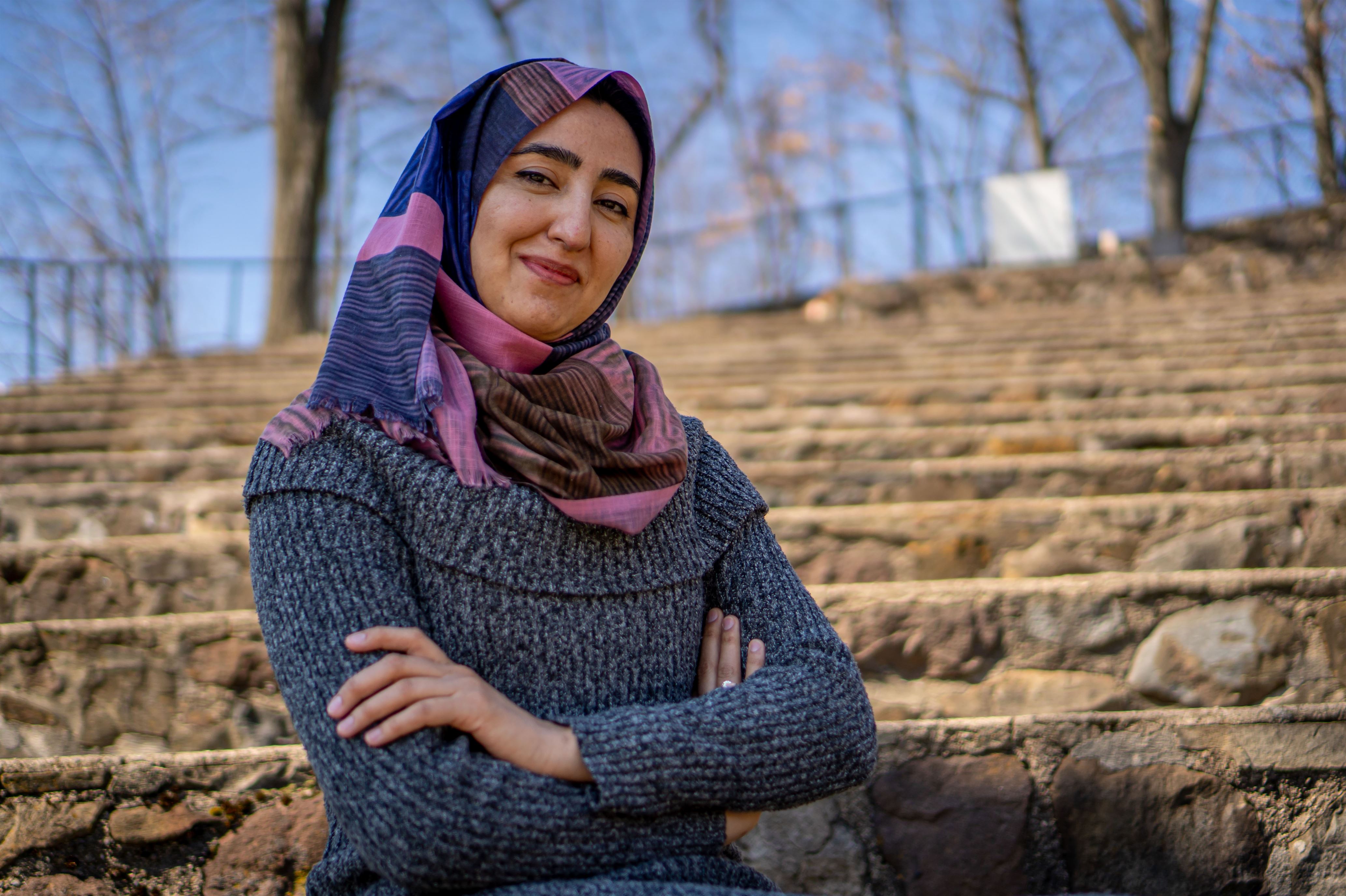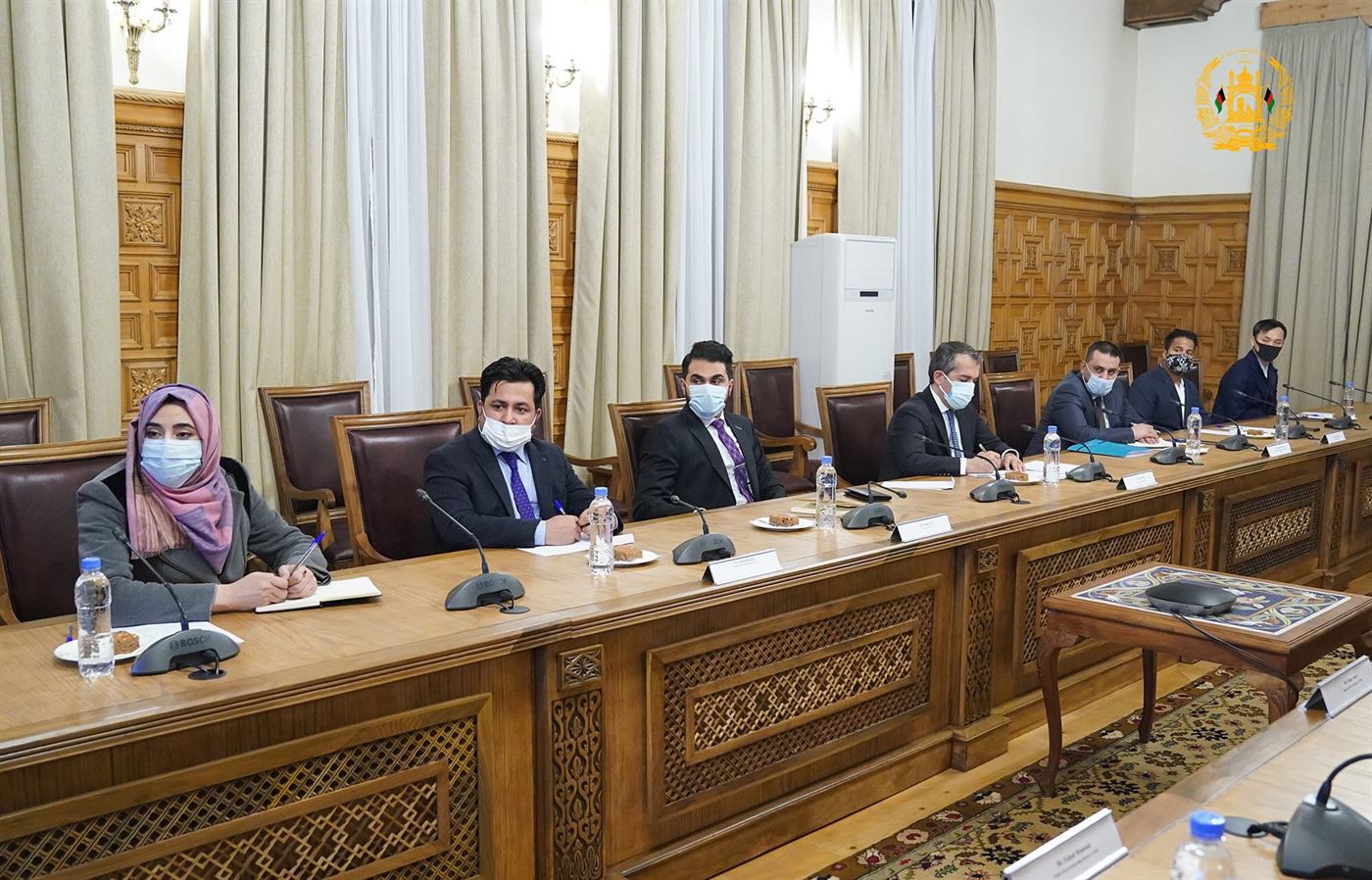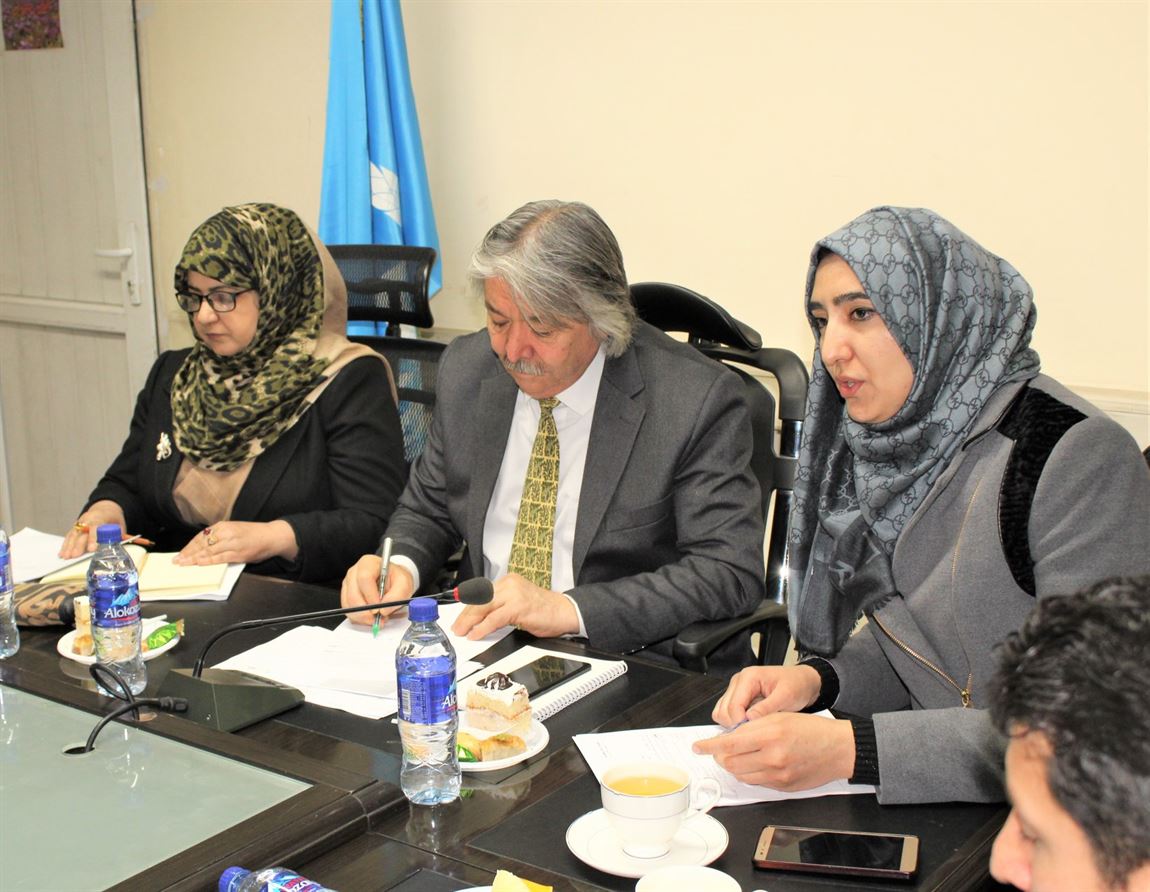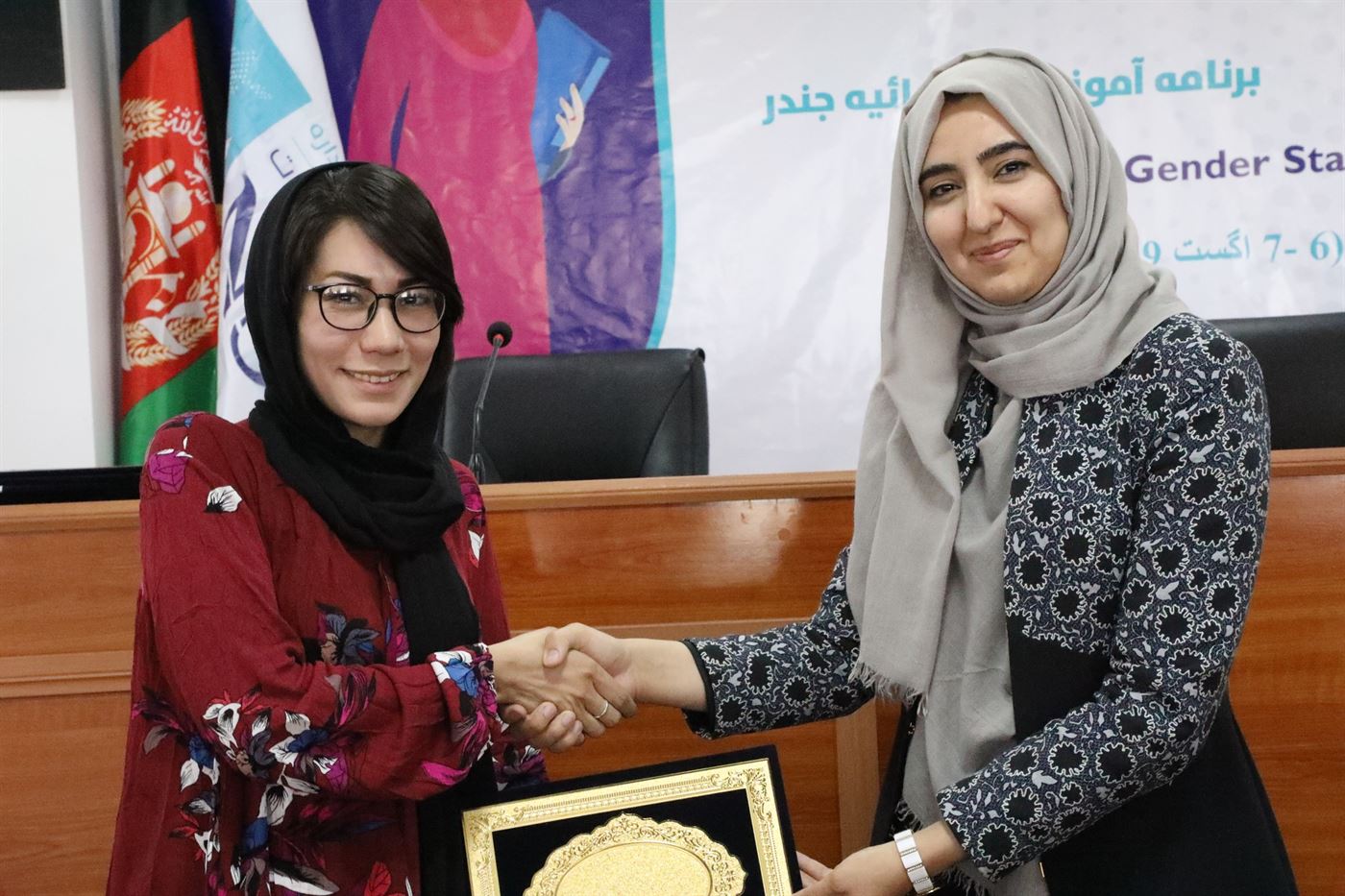“If you asked me [where I see myself in 20 years] in August – on Aug. 15, 2021, while I was in Afghanistan, I’d have no answer.”
The accomplished daughter of a diplomat and a kindergarten teacher, Roya Saqib, a former technical assistant to the former president of Afghanistan Ashraf Ghani, was in elementary school when the Taliban said she could no longer receive an education because she was a girl. Now, 20 years later, and just over seven months since the extremist group regained control of Afghanistan, those fears for women and girls in her country have come back.
“It is not my story only, it can be for any girl in my country, and some boys,” Saqib said. “But mostly for girls because they were banned from school many times; during the civil war, the new regime changes [and] the Taliban coming.”
Born and raised in Kabul, Afghanistan, Saqib recalled moving around as a child due to the civil war and the Taliban’s first regime, which lasted from 1996 to 2001. During that time, the Taliban enforced a strict interpretation of Sharia law, killing many Afghan civilians, banning television and music and prohibiting women and girls from school as well as most employment opportunities outside the home. However, the Taliban did not stop her from educating herself.
“I was very much interested in education as a kid. I was the kind of kid that would cry for a school,” Saqib said, remembering how happy she had felt when she took the risk of attending a secret homeschooling facility, only to be followed by sadness when it closed down one week later.
Because of her hard work, when the Taliban finally left, Saqib was promoted to ninth grade by passing talent exams and using government-provided opportunities for girls. Within a couple of years, she had received a full scholarship to Jami Millia Islamia in India, where she received a bachelor’s degree in political science and economics and graduated first in her class.
According to Saqib, it was not common for girls to get a scholarship and leave the country for school due to the many changes in regimes which caused unsafe and strict social norms for women and girls.
“The social structure had changed so much,” Saqib said. “There was so much fear to send your [daughter] to university, let alone send them to another country as a teenager.”
She went on to receive a master’s degree in international relations at Jawaharlal Nehru University New Delhi in India, then a second masters of science in management at Simmons University in Boston, Massachusetts with a Fulbright Scholarship, where she graduated in 2015.
Saqib returned to Kabul and worked many jobs, from leading a communication and outreach team that promoted women in government to acting as the director of the Women’s Economic Empowerment National Program and eventually, at 29 years old, landing a position as the technical assistant to the president of Afghanistan, where she coordinated with other government entities, conducted research and provided reports to the president.
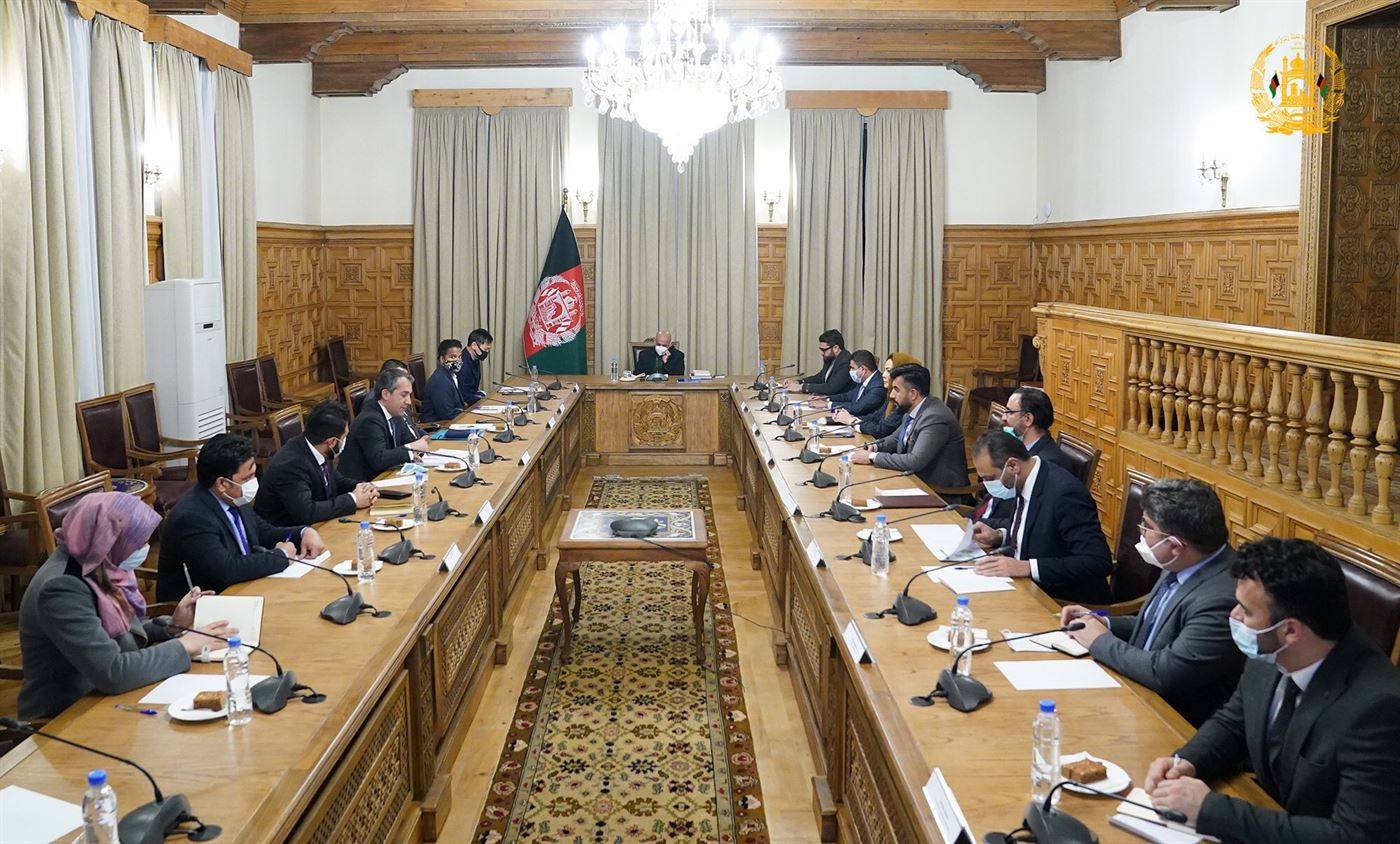
Saqib (far left) in a meeting as the technical assistant to the former President of Afghanistan Ashraf Ghani, who is pictured in the center chair.
Photo courtesy of Roya Saqib
That lasted one year and two months before the government collapsed and the Taliban took over once again.
“People were getting scared day-by-day, they thought [the Taliban was] coming to share the power,” Saqib said. “They couldn’t imagine that they could get the whole government in their hands.”
When she had first received the call from her driver on Aug. 15, 2021, saying the Taliban was closing in on Kabul, she brushed it off as a rumor. However, when all the phone lines were busy and she saw people running home to safety and rushing to get visas to leave the country, she knew it was real. Later on, she found out the president and his team had fled the country.
“That was the time I believed that nothing is normal, and everything is gone now,” Saqib said.
According to Saqib, she couldn’t even fathom staying alive as they had been killing government employees for so long.
“It was a nightmare for me,” Saqib said. “I thought I lost all the efforts, all the hard work, all the ambition that I had. I was sitting at home and just doing nothing, like what now? At least if I don’t get killed.”
However, it wasn’t dying herself she was afraid of, nor was it the violence she had grown accustomed to her whole life such as airstrikes, rockets and at least one suicide bombing or blast a day in Kabul and every other province; it was the fact that every record of her immediate family and relatives, along with their addresses and phone numbers were stored in a database in the president’s office when she began her job there.
“My life not so much, but for my family’s life I was scared,” Saqib said. “I remember when I would hear people walking on the stairs [at my apartment] … my heartbeat would go high and I would think they were knocking on my door.”
Despite everyone telling her to destroy her degrees out of fear the Taliban would find out she had studied abroad, something her father did during the civil war to hide that he had studied in the United States, she did not.
“I said, ‘No I’m not going to do that, even if I die,'” Saqib said. “Because every degree I earned, every certificate I earned, I worked so hard for it.”
It was because of the connections she had made while studying abroad that she was finally able to evacuate, and even though she was leaving Afghanistan behind, she knew she wanted to continue serving her home country.
“[If I leave], I can pursue my bigger goals, which are serving humanity, serving my country from another place,” Saqib said. “[In Afghanistan under the current circumstances], I wouldn’t be able to pursue anything – if I stay alive.”
In September 2021, Saqib and her mother were given an opportunity to fly out of Afghanistan to a nearby country, though it meant leaving behind her father and sister, something she said was a difficult decision. While the rest of her family evacuated two months later, only Saqib and her mother were flown to the United States, on Oct. 29, where they remained at the Fort Dix military base in New Jersey for three months.
As for how things are now in Afghanistan, Saqib says public schools still have not reopened, and when they do, girls will be allowed to attend unlike during the Taliban’s previous ruling. However, women are still being deprived of holding leadership positions within the government, something Saqib says will cause a decrease in ambition for women to pursue an education with a career goal.
“Killing with a knife is one thing and we have a phrase; killing with cotton is killing the person, still, but in a soft way,” Saqib said. “In terms of women’s rights and so many civil rights, they are killing people with cotton.”
Saqib says her role in being a women’s rights activist is not her job, it’s her prophecy.
“As a girl in Afghanistan, if you are in a position where you lead and manage so many men, it is not a smooth process,” she said. “You must have come across so many challenges and barriers on your way. You have come across all of that and you have fought and you have removed them to reach there. When you think of so many other girls, if they are not in the position to fight it, then you become more determined to fight for their rights.”
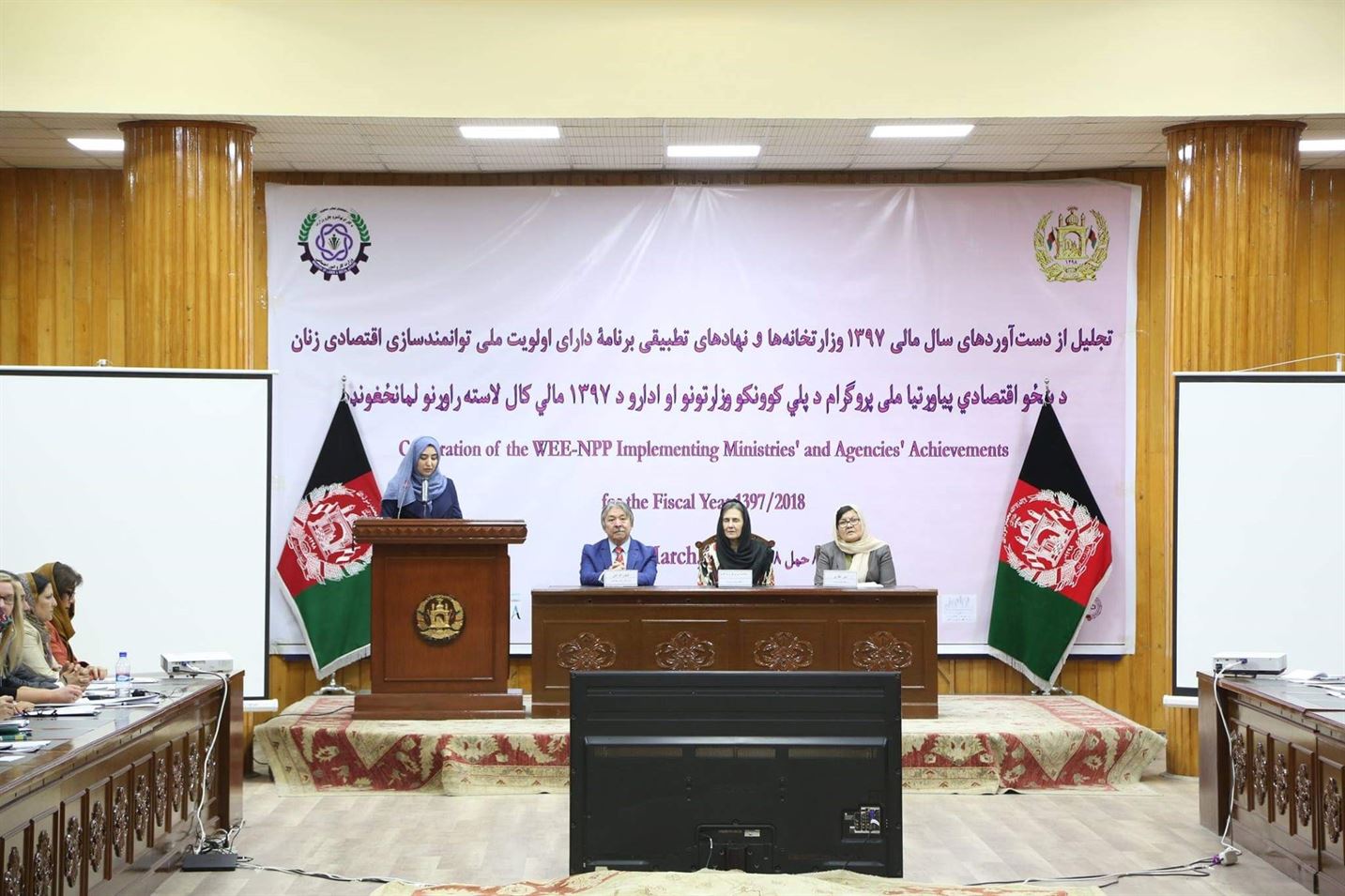
Roya Saqib delivers a speech as the organizer of an event on the Women’s Economic Empowerment National Program, where the First Lady of Afghanistan, ministers, deputy ministers and international organizations were present.
Photo courtesy of Roya Saqib
Now, Saqib has found a home at Montclair State University as an instructional specialist who will teach in the political science and law department, where she hopes to encourage people to go deeper than what the media says before making a judgment on matters relating to international affairs.
In her lectures this summer, she will use what happened in Afghanistan as a case study, discussing everything from peace processes and war to the politics of developing countries. In the fall, she will be teaching Intro to International Relations Theories and Special Topics in Politics. She will be talking about these matters in an open conversation in the Feliciano School of Business on March 30.
“I like the friendly environment here and all the people around, particularly the people I know in faculty and staff,” Saqib said. “They’ve been really kind and I think they have not let me feel uncomfortable and new.”
Peter Kingstone, the dean of the College of Humanities and Social Sciences, said aside from Saqib’s excellent academic and professional accomplishments, she’s had an impressive and inspirational journey.
“Our students are lucky to be able to learn from somebody who has applied academic knowledge to solving real-world problems in really challenging circumstances,” Kingstone said.
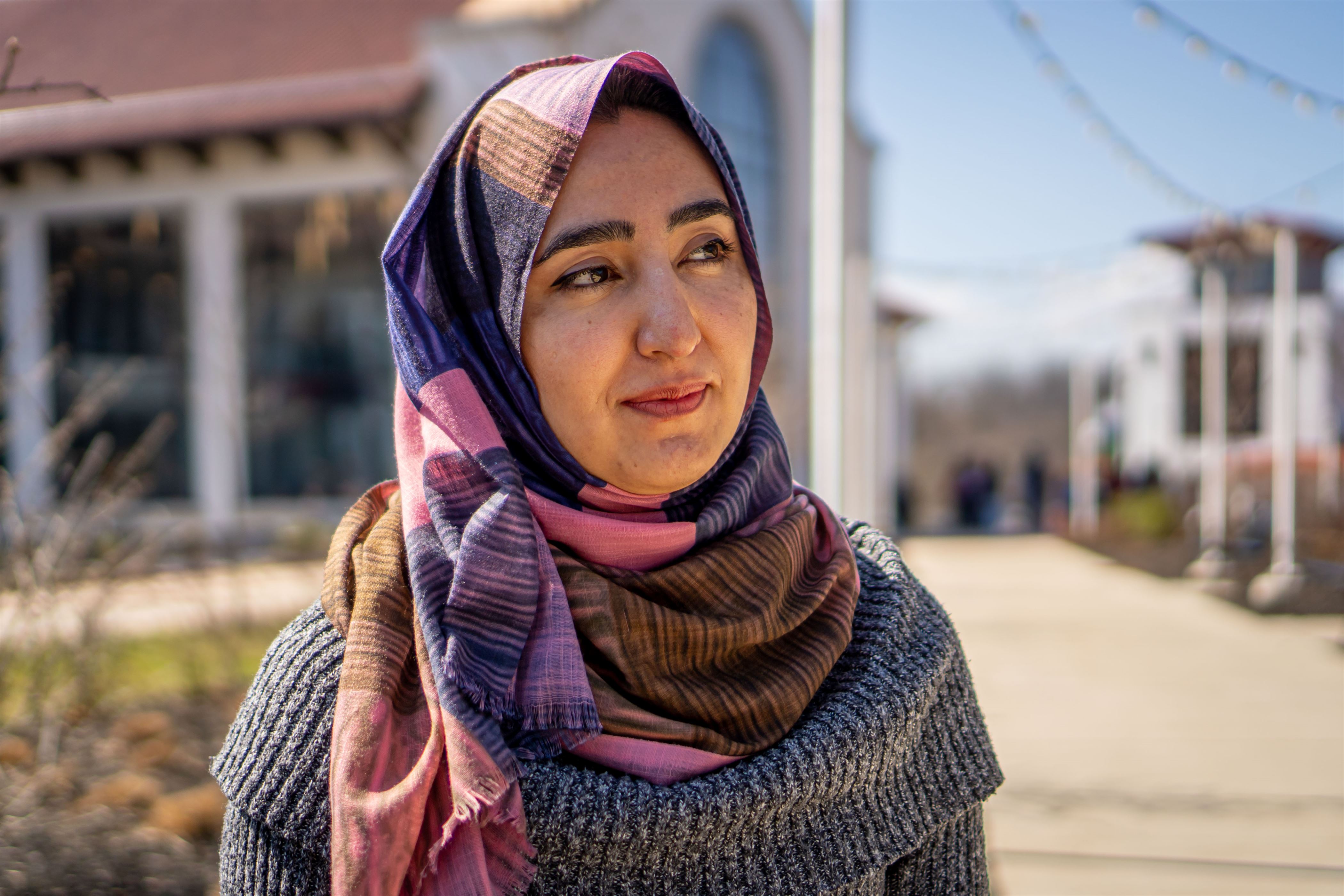
Saqib is an instructional specialist in the political science and law department and will be teaching two classes in the fall semester.
Lynise Olivacce | The Montclarion
As for where she sees herself in 20 years, Saqib, who thrives off a good challenge, now has a clear vision.
“[There are] three things: women empowerment, particularly in developing countries and countries like Afghanistan … and fighting poverty globally, not just in my country. And working for peace,” Saqib said. “These are the things which I have been suffering [from] and I want to tackle those challenges.”

